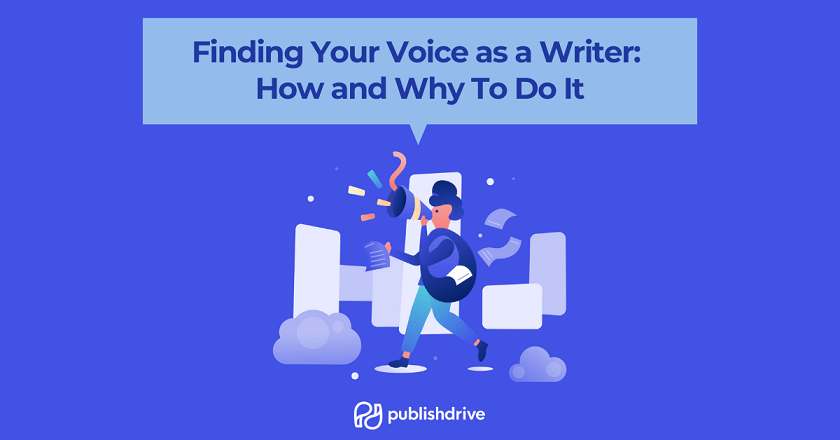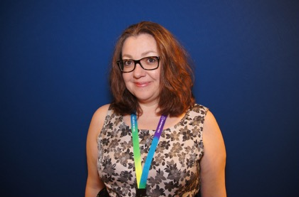Finding Your Voice as a Writer: How and Why to Do It

“Finding Your Voice as a Writer: How and Why To Do It” was written by Tere Michaels. Tere writes happily ever afters in the big city – with heaps of snark, angst and humor. She has been presenting workshops on the writing process for ten years and has taught at RT Booklovers Convention, RWA online classes and chapters, and much more. Send her a message through her website or connect with her on Twitter (@TereMichaels) and Facebook.

Since childhood I was a voracious reader, literally consuming anything with words. In my tiny hometown library, I plowed through the entire children’s room, every single shelf, including all the Nancy Drew and Hardy Boys ever written. Before I was twelve, I had a special note on my library card saying I could take whatever I wanted from the adult section.
Vor-a-cious.
Because I read everything, a genre wasn’t necessarily automatic when I started writing. I wrote more to my liking, my feelings. Family sagas with romance and action, and maybe a haunted buried treasure. Big groups of people being family and friends, but also having adventures. Fallen tarnished heroes redeeming themselves and the underdog getting his or her moment. People redeemed by love.
I was figuring out—without knowing it—what my voice was as a writer. It turned out to be the most important component in my career.
What Exactly Is Writer's Voice?
At the heart of it, a writer’s voice is HOW and WHY they tell a story. Their perspective, their choices, their tone, their humor, their pathos—it’s what makes the hundredth version of any trope stand out as something special.
When we say there are no original stories, it’s the truth. What is original, what compels a reader to keep turning those pages—despite a ringing phone or burning dinner—is the writer’s voice, propelling them through the story.
This is particularly true for romance authors! The reader already knows the ending of the story—HEA. So why do they keep reading? Why can’t they stop? It’s the author, in their ear, giving them a new and interesting reason to keep going.
You’ve read this before, but not like THIS.
Ideally, a writer’s voice is their comfortable storytelling place. It’s natural and automatic, like breathing and blinking. Not to say you shouldn’t challenge yourself, but when you decide to scale the highest mountain, you want your gear to be trustworthy and reliable. You want your comfortable shoes (and your lucky socks!) to take you to the top.
Know your voice and know yourself, and get to that next mountain.
What Makes You You Is Your Writer’s Voice
When we started writing, chances are we had settled on a voice based on another author. It’s how we figure out what OUR writer’s voice is, by slapping some training wheels on Stephen King or Nora Roberts.
We liked that voice—it made us happy as readers and it excited us as baby authors. Maybe we liked it because we imagined it covered with little dollar signs. That works, too! Regardless of reasons, it’s the primer you are copying in an effort to learn.
But even before you opened a fresh document or a clean piece of paper, your unique “tells” were starting to form. The tales you decided to weave, the genre you chose, even the character you started with on page one—all of that was your writer’s voice forming.
Your voice had been forming since before you were born. No, really! From your DNA to your fourth grade English teacher to your first apartment. These are the building blocks of your voice.
Need a list? Here you go:
- Race
- Religion
- Ethnic background
- When you were born, where you were born
- Your parents and authority figures
- Education (including who encouraged and who discouraged your writing)
- How old you were when you started writing
- What you’ve read
- What you haven’t read
- Pop culture you’ve consumed
- The language(s) you speak
- Your childhood
- Your family, friends, lovers (good and bad)
- Travel
- Your mental health
- The person you are when you are writing the story
No wonder we talk about originality being in a writer’s voice! All those factors come together to create the unique wonder that is the how—and why—you tell a story.
Uncovering your author’s voice is more than finding your style or choosing a genre. It’s examining WHY you write the stories you do and even deeper than that, WHY you are a writer.
What compels you to write?
It’s a little like making a character sheet for yourself! What are your motives? Are you writing to prove something? Get your revenge? Conquer your internal dragons? To be Stephen King or Nora Roberts?
There aren’t any wrong answers to that question. You are a unique individual with dreams and desires—even better, you are the author of your story.
Know why you write. Be honest about it. It’s part of your voice.
Tips for Finding Your Voice as a Writer
Step One: Excavate Your Roots
If you feel like you’re not entirely sure what your WHY is, here’s a fun exercise:
On a piece of paper, write down five favorite books, television shows, or movies (a mix of them is fine). We’re talking all-time favorites, preferably from childhood/teendom, things you can consume a thousand times then start over a thousand times again.
Now, next to each, write down a scene or character that has stuck with you. Something that provokes emotion even today.
Sit with this list. Don’t focus on the practical stuff they might have in common (genre, medium), but rather the emotional connection you made to the story or storytelling.
Was it the intricate plot? A particular character? A relationship? A theme?
What is the deeper root of the story you were attracted to? And how does that relate to what you write, or what sort of narrative you are attracted to now? Did it end the way you wanted it to?
Our voice as writers is not only evident in HOW we write a story but also WHY we write that story. If we are not emotionally connected to what we write, how do we expect readers to connect?
To get the most from your story, write to fulfill something in yourself. You are choosing the characters and the story and the ending based on your needs—regardless of the editor or deadline or trend.
If you’re not writing stories you love about themes you are fascinated by, I can’t guarantee you’ll have a long career. Or an enjoyable one.
I write to explore tarnished heroes—fundamentally good people who have made mistakes. They are very internal stories with a lot of dialogue, which seems counterintuitive but makes perfect sense to me!
I write because I love it and even when I’m not actively working on a book, my brain is telling stories and dissecting characters. I spend an inordinate amount of time on the emotional arc of the story. My writer’s voice is: I couldn’t stop if I tried. I want to tell stories of a journey to redemption.
It’s not something that can necessarily be distilled into a few pithy words. But I have an understanding of how I write, why I write, and what I am compelled to explore. If I examine the media and narratives I consume, it lines up perfectly. I am fascinated by that internal struggle. I want to mine it and then fix it.
Step Two: Create a "Writer's Voice Statement" for Yourself
Dig deep. It’s just for you, a tool to help you on your journey. It’s not a prison, it’s not a box you must keep yourself in. Voice transcends genre. You can write whatever you want—that isn’t going to change who you are and why you write.
Knowing your writer’s voice gives you levels of personal understanding as a published author. Whether it’s examining current markets to see where your voice fits in, or easily sidestepping the notion of “writing to trend,” you are captaining your career with the most information possible!
It impacts your tone on social media, your marketing approach, your branding—and when your basis is your writer’s voice, you are always coming from a natural, comfortable and genuine space. You know what you write, why you write it and what’s next on your journey.
Now take your writer’s voice into the world and dazzle some readers!
A Note From PublishDrive: We hope you enjoyed this article about finding your voice as a writer! Once you’ve identified your writer’s voice, it’s time to get started on your manuscript! If you need help converting your manuscript, head over to our FREE ebook converter here.
When you’re ready to publish your ebook, we’d love to help. PublishDrive’s distribution network includes 400+ online stores (including major retailers like Amazon), built in promotion tools, and more. Sign up below to create your FREE account!